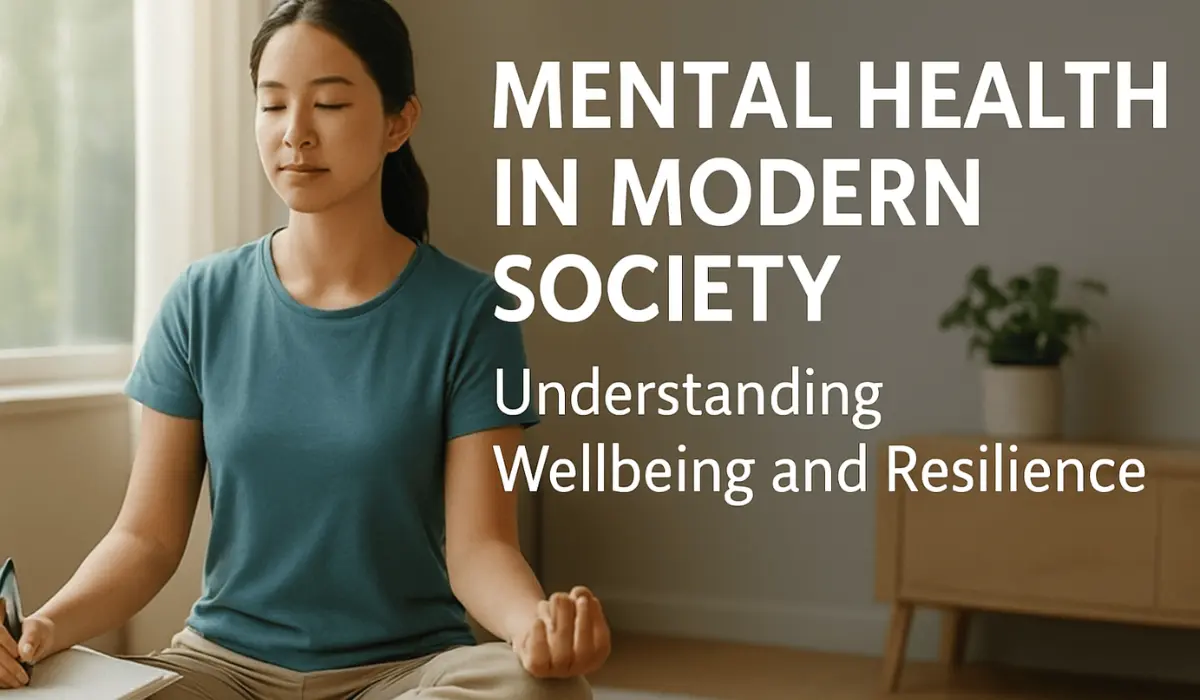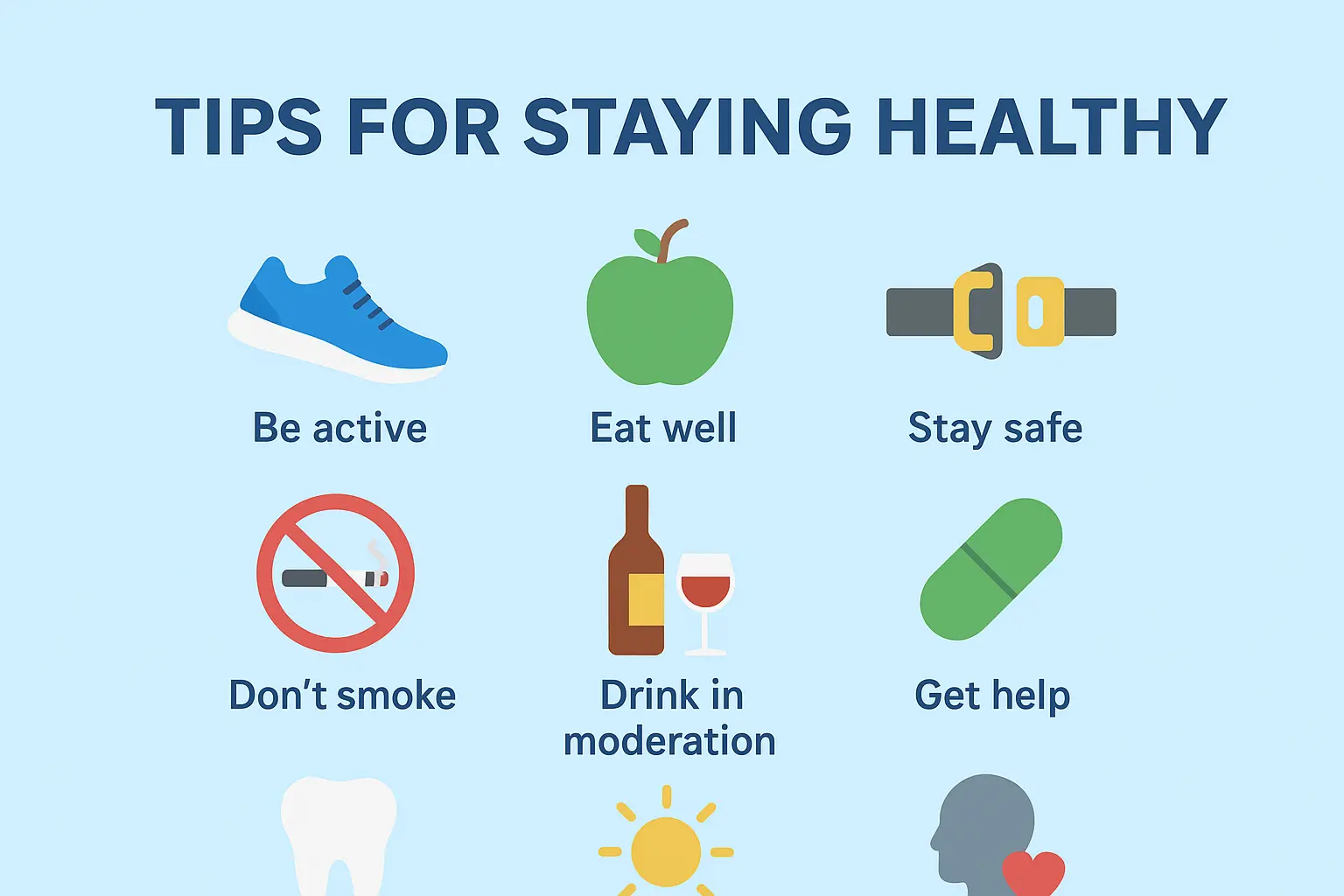
Introduction
The discussion of mental health has over the past few decades moved to the outer edges of the social discussion up into the centre of it. However, despite this positive movement, the topic is highly complex, as it is influenced by a complex of biological, psychological, and cultural determinants. Mental health does not simply indicate disease-free state and actually indicates emotional balance, cognitive clarity, and ability to form significant relationships. In a rapidly developing modern world, understanding mental health is not only a personal requirement, but also a social one which shapes the community lives of the contemporary society.
Why Mental Health Matters in Contemporary Society?
Mental health is vital as it determines how one thinks, feels, and how he or she acts in his or her daily life. It affects the productivity of the occupation, interpersonal relations, and the ability to meet difficulties. As the World Health Organization (WHO) states, the number of people disabled worldwide by depression and anxiety is one of the primary leading causes of morbidity, which is why psychological well-being cannot be merely a luxury, but one of the cornerstones of population health.
The mental resilience is now indispensable in contemporary societies where stress, competition, and social comparison are also unavoidable. Without a stable state of psychologists, communities are subjected to growing envy of burnout, drug and drug abuse, and suicide. Mental health, therefore, is not only a compassionate endeavor but also a socioeconomic issue that should be prioritized.
What is the Impact of Modern Society on Mental Health?
There are pressures and opportunities associated with modern life. On the one hand, the technological and medical development has increased access to knowledge, treatment, and socialization. The use of online support groups and counseling platforms allows people to find possible help in a private manner and easily. However, the identical technological saturation may produce new strains. The increased exposure to social media, in particular, has been associated with increased anxiety, loneliness, and body-image disappointment, especially in the youth.
Moreover, economic turmoil, working instability, and city overpopulation give an added burden of stress. The majority of people live in environments where there is a lot of uncertainty and increased expectations and pretty much with little social support. According to scholars who have criticized the approach of only keeping individual coping without expanding on the greater problems, including inequality, discrimination, and poverty, one can easily reduce distress as a personal failure instead of a group issue.
The 5 C’s of Mental Health
In order to conceptualise more of the foundations of mental well-being, many psychologists and educators include the so-called 5 Cs of Mental Health in the list. These are:
Connection - Developing strong ties and a feeling of belonging.
Competence - Awareness of his competence and self-efficacy.
Coping - Learning positive ways of coping with stress and adversity.
Confidence - Work to attain self-esteem by accepting and knowing yourself.
Character - Be ethical, caring, and purposeful.
A combination of these five components forms an emotional strength-resilience-psychological development model. They allow one to face life challenges with flexibility and optimism, as well, when fostered.
What Can Be Done to Improve Mental Health?
Mental health is a holistic and inclusive issue that needs to be integrated by not only addressing the individual practices but also including the change of society. Some of the most effective strategies have been suggested by the research and experience:
Promote Open Conversations
Stigma is reduced by encouraging the discussion of mental health. Work, school, and neighbourhoods must help the emotional state by normalising the conversation on it so as to foster supportive settings.
Be Mindful and Take Care of Yourself
The methods include meditation, journaling, and exercise methods, which could control mood, anxiety and focus. Although the difference is small, even simple practices, like keeping sleep hygiene and setting boundaries, can yield tangible results.
Seek Professional Support
The coping skills and processing of trauma are facilitated by using therapy or counselling. Governments and institutions should make care accessible and affordable and ensure equitable access, especially in low and middle-income areas.
Enhance Social Networks
Citizen identification is among the biggest predictors of mental health. Investing in friendship, family relations, and neighborhood participation leads to emotional support and reduced isolation.
Manage Structural Inequalities
The factors of poverty, homelessness, or discrimination have a major impact on mental health. The policies, which encourage well-being in society, require justice, equity, and inclusion.
Digital Balance
Technology may be empowering, depending on how it is used. The remedies to bring psychological balance also include limiting screen time, selecting positive online content, and taking digital breaks.
Cultural and Educational Aspects
Family values influence the how and understanding of distress. Some cultures position depression in the biomedical contexts, whilst others may perceive it materially or even spiritually. Consequently, culturally responsive interventions, i.e., respecting the local beliefs and practices, are of necessary. When based on evidence and empathy, community-based and traditional methods of healing may be useful as an addition to clinical treatment.
There is also a transformative role of education. Long-term distress can be prevented by providing early interventions like mindfulness programmes, peer mentoring and emotional literacy training in schools. However, scholars warn that such efforts need to be complemented with institutional change: personal coping mechanisms will not overcome the problem of systemic exploitation or social injustice.
A Community Way to Well-Being
Finally, education on mental health in contemporary society introduces one to the question of what the good life is. Economic instability, concern about the environment, and being always available can challenge human resilience, but this can also bring some renewal. The more the communities are compassionate, understanding, and inclusive, the closer they will be to collective well-being.
A healthy society is never a society that is not distressed but one that hearkens to this distress with sympathy and responsive actions. Authentic development will become a reality when mental health is not viewed as a personal issue, but as a vital component of social justice and human dignity.


